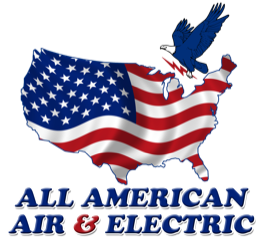Clangs, Creaks, and Whistles: Signs Your HVAC System Needs Repairs
You know that something must be wrong with your HVAC system, but you aren’t sure if the system needs repairs or if you simply need to turn down the thermostat. Below, we’ll discuss the four most common signs that your HVAC system requires maintenance. Read on so you know how to recognize an issue and contact an HVAC professional in a timely manner.
- Strange Noises
The biggest indicator that something is wrong with your HVAC unit is if you hear strange noises. Some problematic sounds you may hear include:
- Thumping
- Banging
- Clanging
- Creaking
- Whistling
- Rattling
- Clicking
- Screeching
- Squealing
- Chirping
- Popping
- Vibrating
- Humming
- Grinding
- Grating
You may even hear a thwapping noise as the blower in your unit runs. Often, this sound means that something is stuck inside the blower. If left unchecked, it could cause more problems later on. The noise sounds similar to cards slapping against bicycle tire spokes.
- Odd Odors
Let’s face it: you like your home to smell clean and fresh. And any foul odors tell you that something is wrong. For example, if your garbage starts to smell pungent and overwhelming, you know you need to take the trash out to your larger bin.
Likewise, odd odors that come from your home’s vents or the HVAC unit itself often indicate that your system needs repairs. Some odors you may notice include:
- Electrical smell, which often indicates a malfunctioning or broken motor
- Burning smell, which typically means the HVAC system’s fuel source is burning
- Rotten eggs, which usually tells you that there’s a gas leak somewhere in the system
If you smell a musty odor, you likely have mold or mildew somewhere inside the unit, vents, or ductwork. You should have the system cleaned as soon as possible, as exposure to mold can increase your risk for developing respiratory health issues.
- Little Air Flow
Your HVAC’s primary purpose is to circulate warm or cold air evenly throughout your home. But if you don’t feel air blowing from your vents and ducts, you likely have a clog or buildup somewhere in your HVAC system.
Usually, dust and debris build up inside your vents and impede the airflow. Sometimes you can simply remove the vent cover and use a warm, damp rag to clean the dust in the vents. However, if this step doesn’t fix the problem, debris and dust could be caught further along in the system. An HVAC expert can further inspect your system and offer an effective solution.
- Visible Moisture or Condensation
Most people don’t know that they’ll typically find a little moisture in their HVAC units. The air conditioner specifically outputs a small amount of moisture as it cools outside air.
A condenser inside the unit takes the air, condenses it into a liquid, and then turns that liquid into a cooled gas that lowers your home’s internal temperature. This process occurs inside the air conditioner, so you don’t usually see the condensation.
However, if you can easily see moisture or condensation on or around the unit, you could have a big problem on your hands. If the condenser has a leak, it can’t cool your air as efficiently, so your home will feel hotter than normal. Likewise, the liquid could have come from a refrigerant leak. Exposure to this chemical can put you and your family at risk for health issues.
On the other hand, puddles of water surrounding the unit could mean that the drain tube has broken or become clogged.
Whatever the cause for the visible moisture, you don’t want to manage this problem on your own. Because this sign could result from several different issues, you should have a licensed HVAC professional inspect the unit and make repairs accordingly.
Other Factors to Consider
Additionally, you may want to consider the following factors to determine if your system needs repairs:
- The unit has had frequent repairs over the last few years.
- The unit is more than 15 years old.
- Your utility costs have skyrocketed over the last few months.
- The temperature inside your home is uncomfortably warm even if you’ve turned down the thermostat.
Pay attention to your heater or furnace and air conditioner, and see if you notice any odd noises, strange smells, or other issues. If you do notice these signs, contact your local HVAC technician as soon as possible. He or she can perform repairs on your unit so it runs smoothly and efficiently again.
Additionally, this professional can provide you with tips to use throughout the year to keep your HVAC system in top shape throughout the season. Should you need to replace your unit, he or she can also recommend a new model that fits your budget, your home’s needs, and your energy-efficiency goals.

